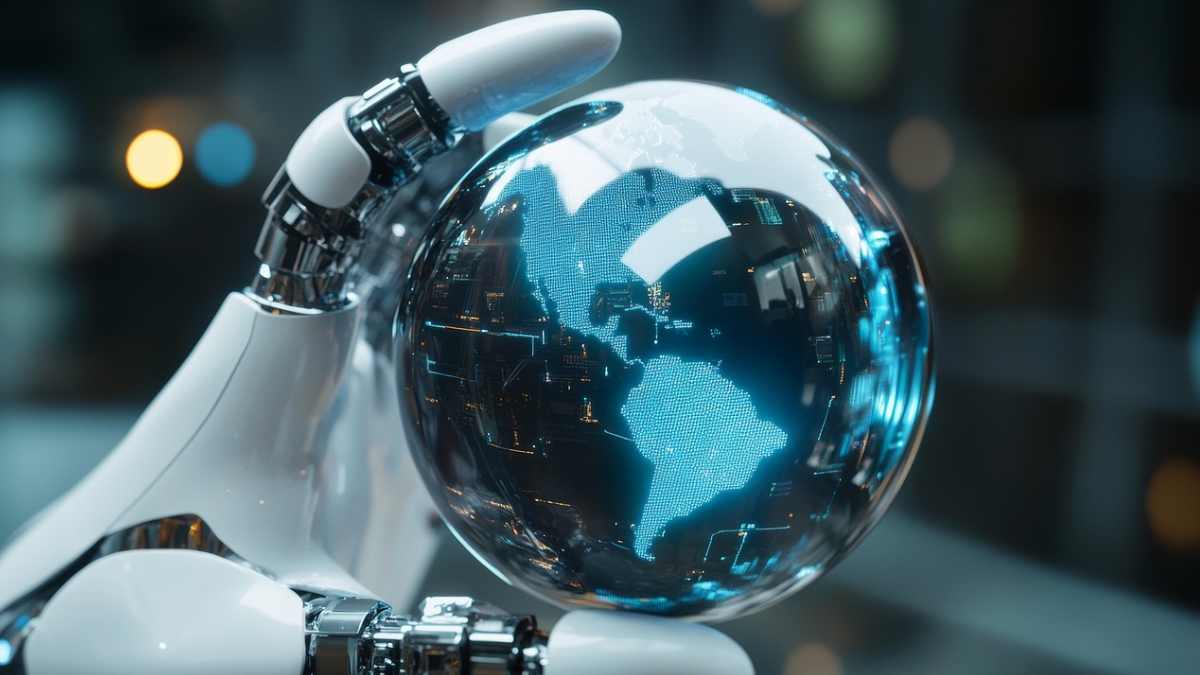You know what’s funny? Last week, my 8-year-old nephew asked me if robots were gonna take over the world. After I stopped laughing, I realized he was basically asking the same question that’s been bugging humans for decades. So I started digging into this whole AI thing – and honestly, the rabbit hole goes way deeper than I expected.
The more I looked into it, the more I kept bumping into this one name: Alan Turing. Turns out, when people ask who is the father of artificial intelligence, they’re usually talking about a guy who died before most of us were even born. Wild, right?
Table of Contents
ToggleWho Is The Father Of Artificial Intelligence? The Guy Who Started It All
So here’s the thing – Alan Turing gets the title, and man, does he deserve it. Picture this: it’s 1950, people are still getting used to basic computers, and this dude is already thinking about machines that could think like us.
I spent hours reading about Turing’s life (yes, I’m that kind of nerd), and the guy was absolutely brilliant. He came up with this test – now called the Turing Test – that basically said: “If you can chat with a machine and can’t tell it’s not human, then it’s intelligent.”
Sounds simple now, but back then? People thought he was crazy.
But wait, there’s more to this story:
John McCarthy – The Name Dropper
This guy literally invented the term “artificial intelligence” at some conference in 1956. Before McCarthy, people were calling it all sorts of random stuff. He also created LISP, which is this programming language that AI researchers still use today.
Fun fact: I tried learning LISP once. Let’s just say it didn’t go well.
Marvin Minsky – The Network Guy
Minsky was building neural networks before they were cool. Like, way before. He co-founded MIT’s AI lab and basically laid the groundwork for all the fancy deep learning stuff we see today.
What’s crazy is these guys were figuring this out with computers that had less power than your smartphone calculator.
Which of the Following Is the Branch of Artificial Intelligence? Breaking Down the Family Tree
Okay, so AI isn’t just one thing – it’s like a huge family with a bunch of different cousins. Here’s how I explain it to people:
Machine Learning (The Popular Kid)
This is where computers learn stuff without you having to program every single detail. It’s like teaching a kid to recognize dogs – you show them a bunch of dog pictures, and eventually they figure it out.
There are different flavors:
- Supervised Learning: You hold their hand and show them examples
- Unsupervised Learning: They figure out patterns on their own (scary but cool)
- Reinforcement Learning: They learn by messing up a lot (like how I learned to drive)
Natural Language Processing (The Talker)
This helps computers understand human language. Ever wonder how Google Translate works? Or how Siri knows what you’re saying? That’s NLP doing its magic.
I remember when Google Translate was absolute garbage. Now it’s actually pretty decent. Technology, man.
Computer Vision (The Eye)
Teaching machines to “see” stuff. Your phone recognizing your face? Computer vision. Those fancy cameras that spot license plates? Also computer vision.
Robotics (The Mover)
This is where AI meets the physical world. Those Boston Dynamics robots that do backflips? Yeah, that’s some next-level robotics right there.
Expert Systems (The Know-It-All)
These try to mimic human experts in specific areas. Like having a digital doctor or lawyer (but don’t fire your real ones just yet).
The weird part is, all these branches keep mixing together. Modern AI apps usually use several of these at once.
Which Language Is Used for Artificial Intelligence? The Programmer’s Dilemma
Everyone always asks me this: “What should I learn if I want to get into AI?”
Here’s my brutally honest take:
Python (The Golden Child)
About 80% of AI folks use Python, and there’s a good reason. It’s like learning to ride a bike with training wheels – just easier to get started.
Why Python rocks:
- You can actually read the code (unlike some languages I won’t name)
- Tons of ready-made tools and libraries
- Huge community – if you’re stuck, someone’s already solved your problem
- Most AI jobs expect you to know it
I learned Python three years ago after struggling with C++ for months. Wish I’d started with Python.
R (The Stats Nerd)
If you’re into heavy-duty statistics and data analysis, R is your best friend. It’s not as pretty as Python, but man, it’s powerful for number crunching.
Java (The Corporate Favorite)
Big companies love Java because it’s stable and doesn’t break easily. Not as trendy, but it pays the bills.
C++ (The Speed Freak)
When you need things to run super fast – like in video games or self-driving cars – C++ is the way to go. But it’s also way harder to learn.
JavaScript (The Surprise Entry)
Yeah, you can actually do AI in JavaScript now. Who would’ve thought? Great if you’re already a web developer.
My advice: Start with Python. Seriously. Don’t overthink it.
Can Artificial Intelligence Replace Human Intelligence? The Question Everyone’s Asking
This is the big one, right? Will AI steal our jobs? Replace our brains? Take over the world?
I’ve spent way too much time thinking about this (probably should’ve been working instead), and here’s what I think:
Where AI Already Kicks Our Butts:
- Number crunching: No human can compete with AI on pure calculations
- Pattern spotting: AI can find patterns in data that we’d never notice
- Memory: Perfect recall of massive amounts of info
- Consistency: AI doesn’t have Monday mornings or post-lunch crashes
Where We Still Rule:
- Creative thinking: Sure, AI can generate art, but truly original ideas? That’s still us
- Reading people: Understanding emotions, sarcasm, context – humans win
- Common sense: We instinctively know stuff that AI struggles with
- Handling weird situations: When something completely unexpected happens, humans adapt way better
My prediction: We’re not getting replaced, we’re getting superpowers. Think of AI as a really smart assistant, not a replacement.
What Is the Primary Goal of Artificial Intelligence? The Big Picture
When I explain AI to my mom (she still thinks Facebook is complicated), she always asks: “But why do we need this?”
Great question, Mom.
The Original Dream (Back in the Day):
Build machines that think exactly like humans. The goal was creating “artificial general intelligence” – basically digital people.
What We’re Actually Doing Now:
Solving specific problems really, really well:
- Diagnosing diseases faster than doctors
- Translating languages instantly
- Beating humans at complex games
- Recognizing faces in photos
The Real Goals Today:
Making Life Easier:
- Automating boring, repetitive tasks
- Helping humans make better decisions
- Processing way more data than we ever could
The Ultimate Goal: Some researchers still dream of AGI – artificial general intelligence that can do anything a human can do. That’s still science fiction, but hey, so was talking to your phone 20 years ago.
Which Has More Scope: Data Science or Artificial Intelligence? The Career Question
This one comes up constantly in my DMs. People are genuinely torn about which path to take.
I’ve worked in both areas, so here’s my inside scoop:
Data Science – The Established Path:
What you’ll do:
- Dig through data to find business insights
- Create charts and reports that actually make sense
- Test different strategies (A/B testing)
- Work closely with business teams
The career reality:
- Pretty solid demand across most industries
- Salaries are decent (₹8-25 lakhs in India, around $70-150K in the US)
- More predictable career growth
- Skills transfer well between companies
AI – The Wild West:
What you’ll do:
- Build systems that can learn and adapt
- Work on cutting-edge research projects
- Create products that feel like magic
- Constantly learn new techniques (because things change fast)
The career reality:
- Explosive growth but also more uncertainty
- Higher salary potential (₹12-40 lakhs in India, $90-200K+ in the US)
- Requires deeper technical skills
- More pressure to stay current with latest developments
My Honest Take:
Go with Data Science if:
- You like working with business people
- You enjoy detective work (finding insights in data)
- You want a more stable, predictable career
- You prefer variety – different projects, different industries
Go with AI if:
- You love building things from scratch
- You get excited about futuristic stuff
- You don’t mind constant learning and uncertainty
- You want to work on the “cool” projects
Plot twist: These fields are merging. Most data science jobs now involve some AI work, and AI engineers need data science skills.
I started in data science and slowly moved toward AI. You don’t have to pick one and stick with it forever.
My Personal Journey (And What I Learned)
Three years ago, I was working in marketing (yeah, completely different field). Then ChatGPT blew up, and I got curious. Started with a free Python course on Coursera, built some basic projects, and eventually landed my first AI gig.
Mistakes I made:
- Tried to learn everything at once (bad idea)
- Focused too much on theory, not enough on building stuff
- Got intimidated by math (you can learn it as you go)
What actually worked:
- Building projects, even crappy ones
- Joining online communities (Reddit, Discord groups)
- Finding a mentor who could answer stupid questions
The Road Ahead (And Why I’m Optimistic)
Here’s the thing – when people ask who is the father of artificial intelligence, they’re really asking about the beginning of something huge. Turing and the other pioneers started something that’s still evolving.
I honestly think we’re just getting started. The AI we have today will look primitive compared to what’s coming. But here’s what I’ve learned: the people who succeed aren’t necessarily the ones who know the most about algorithms.
They’re the ones who understand people.
AI is a tool. The magic happens when you use that tool to solve real human problems. Whether you’re just curious about the history or thinking about jumping into this field, remember that we’re all figuring this out together.
Even the experts are making it up as they go.
And honestly? That’s what makes it exciting.
So yeah, Alan Turing is the father of artificial intelligence, but the story is far from over. We’re all writing the next chapters now.
Related Post: A Brief History of Artificial Intelligence & Algorithm Creation
Shashi Teja
Related posts
Hot Topics
Key Trends in Facility Management to Achieve Productivity Growth
Facilities management is now at a crossroads, where it must enhance productivity, at the same time operating in more dynamic…
How Can You Lend Money Online to Generate a Parallel Income
Making additional revenue in today’s digital economy is easier than ever. Peer-to-peer lending services are becoming more and more popular….



